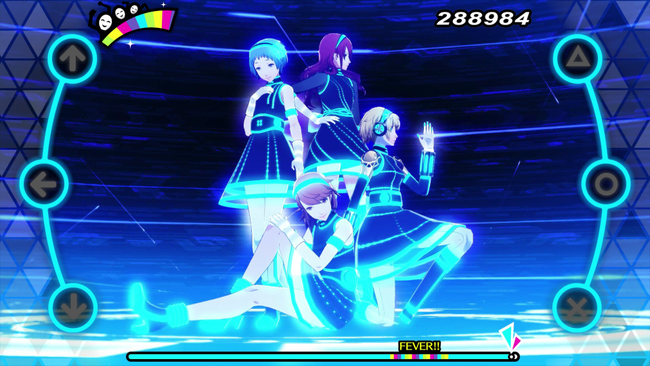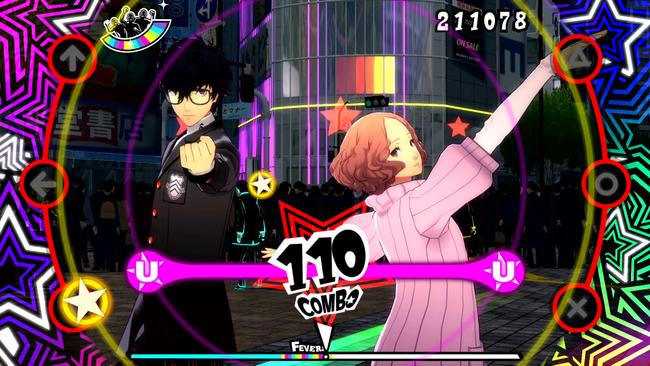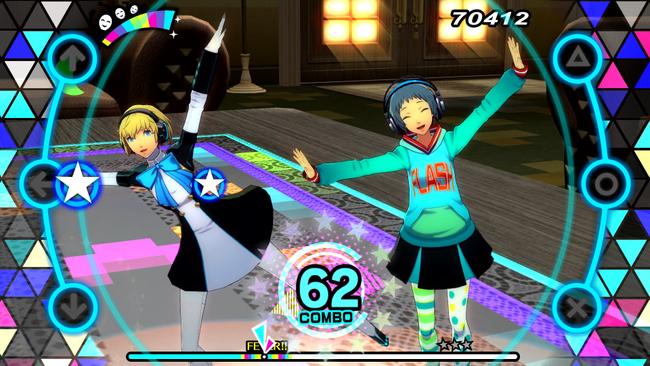Persona 3 Dancing & Persona 5 Dancing Review
I think it's worth noting, before I start talking about Persona 3: Dancing in Moonlight and Persona 5: Dancing in Starlight, that I'm rather into rhythm games. I play them a lot. DJMAX, Project Diva, Taiko no Tatsujin, Musynx, Theatrhythm - while I hesitate to call myself an expert in the genre, I definitely have more experience with it than most. So, some of my qualms with Persona Dancing might sound odd to anyone that's just looking for a Persona spin-off first, and a rhythm game second. Persona 3 and 5 Dancing are good games, but they probably aren't a good value (unless you haven't already played Persona 4 Dancing on the Vita, and you're grabbing the Eternal Night collection). I don't usually like considering value when writing reviews, but when you're asking $60 for Persona 3 and 5 Dancing each outside of the all-in-one pack, the distinct lack of value included in that price is hard to ignore.
As far as gameplay and presentation goes, Persona 3 and 5 Dancing feel incredibly similar to how Persona 4 Dancing played on the Vita. 3 buttons on the right correspond to the 3 note overlays on the right of the screen, the 3 sections on the left of the dpad correspond to the 3 note overlays on the left side of the screen. The PS4's touchpad, analog sticks, or optionally the L1/R1 buttons correspond to scratch notes that overlay the playing field's border. It reminds me considerably of Samba de Amigo, albeit without motion controls. It's entertaining, and the controls themselves are fluid and responsive without any issues. I highly recommend enabling R1/L1 for Scratch notes in the options, but other than that - no complaints here!

Players once again have the Fever meter to contend with, which activates depending on how many rainbow Scratch notes you land before certain sections of each song. Clear the threshold, and you'll unlock sections of the song wherein multiple cast members will dance at the same time, offering a boost in your score multiplayer during the dance's duration. Similarly, the Audience Gauge returns - which is your only determination on whether or not you clear a song. Every rhythm game tends to have a different clear criteria - Project Diva is my favorite, with its grading system based off of a percentage of notes landed, with Theatrhythm sitting a close second. DJMAX and Musynx both have a meter that you have to keep filled to not fail a note chart, but as long as the meter isn't completely empty you'll pass a song. Persona Dancing uses something closer to Taiko's system, where you have a meter, and you don't fail when it empties - but in order to pass a song, you must keep it filled past a certain amount by the time the song finishes.
Personally, I don't care much for this system. I'd rather the first two any day of the week, but I can understand why others might prefer it. I just don't particularly like perfecting a song, messing up the last 10 or so notes, which sometimes is enough to drop me out of that threshold for passing the chart. The scaling seems to be better than Persona 4 Dancing's by a considerable amount, thankfully, but again... this is more of a personal qualm than anything else, and I've certainly seen worse clear systems in some rhythm games.

My bigger, more general complaint with the game has to come with the note charts themselves. Project Diva and Theatrhythm tend to base their charts off of the "feel" of a song - primarily the vocals - and not the actual musical notes within. DJMAX, Musynx, and Taiko, on the other hand, tend to base their charts much more closely on the actual musical composition of a song. Persona, on the other hand, doesn't seem to fit into either of those camps. While most of the note charts are perfectly fine, regardless of the difficulty it never really felt like the note charts lined up with either the composition or "rhythm" of the song quite like they should. Maybe a personal nitpick, but one I can't really ignore.
Character models are all high quality, about what you would expect. Animations, while goofy, are perfectly fine in and of themselves. However - that's about all the good I have to say about the game's presentation.
Persona 4: Dancing All Night had a story which players progressed through. It wasn't a great one, I'd actually argue it was downright bad, but there was something there that contextualized the dancing, giving the game a reason to exist as a Persona spinoff. Despite my qualms with P4D's story, however, Persona 3 and 5 Dancing don't even really attempt to contextualize their "plot", making it rather hard to care about any of the character interactions that the game seems to have included as a substitute for an actual story. You might think this is a weird complaint for a rhythm game - I agree. However, Persona 3 and 5 Dancing offer a horrible value if you're purely looking for a rhythm game on PS4 and Vita. On PS4, you can get Project Diva Future Tone for less than $60 and get 200+ songs to play with... or you can pay $50 and get something close to 150 songs in DJMAX Respect. Both of these are probably some of the best rhythm games mechanically, too, so it's not just the amount of content, but arguably the quality of it as well.

On the flipside, Persona 3 and 5 Dancing have 25 songs each. For $60 each on PS4 - though at $40 on Vita, they aren't exactly an amazing deal there, either. IA/VT Colorful exists. Taiko no Tatsujin V exists. Project Diva f/F 2nd/X exist. The Eternal Night Collection makes things less of a downright rip-off on PS4, but then you're still paying $100 to get just under the amount of content you can get from other, better rhythm games for half the price. It's up to the Persona side of things to pick up the slack and give the games better value, but since character interactions have no context and never go beyond the characterizations seen in their base games, it's hard to take that part of the game's content seriously too. As you go through Social Link challenges you can eventually explore character's rooms, and it has PSVR support which is neat, but somehow these character interactions offer even less for Persona fans than Persona 4 Dancing's already disappointing story.
If you're looking for a Persona spin-off, Persona Q is a much better use of your time and money. Meanwhile, if you're looking for a rhythm game first and foremost, there are much better options for you to persue. Persona 3 and 5 Dancing aren't bad, but in today's rhythm games climate - they needed to offer a lot more to stand out from the crowd.